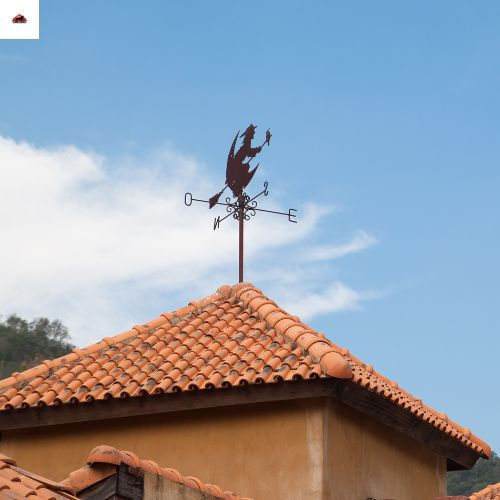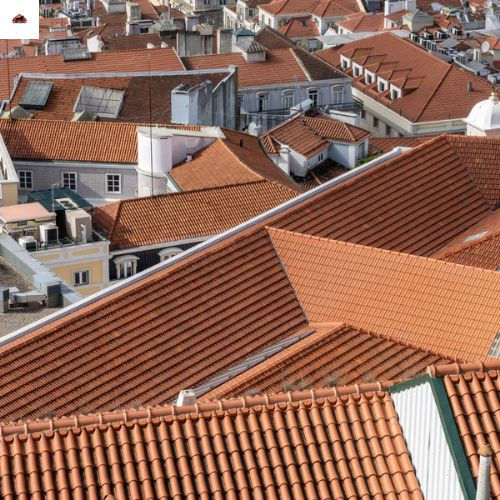Extreme Heat on Roof: How to Maintain Your Roof in Harsh Weather Conditions
- Gorilla Roof
- Oct 17, 2025
- 3 min read
When the sun of summer pounds against your house, your roof absorbs the worst. Prolonged heat on your roof can lead to significant damage over time — from cracked shingles and melted sealants to compromised insulation and increased energy costs. If you reside in Denver, Colorado, where temperatures fluctuate between frigid winters and blistering summers, regular maintenance of your roof is critical to the integrity of your home's structure and comfort level.
Comprehending the Effect of Extreme Heat on Roofs
Your home's first barrier is the roof, yet it collects the most heat. Roof temperatures reach 50–70 degrees above the air temperature in midsummer. When these conditions are prolonged, they result in:
Material degradation: Asphalt shingles tend to blister, curl, or crack because of thermal expansion and contraction.
Roof melt tabs and sealant failure: Adhesive roofing materials will soften or even melt at very high temperatures and cause leaks.
Fading and discoloration: UV light slowly deteriorates surface granules, shortening your roof's protective layer.
Energy inefficiency: As heat is absorbed by the attic and roof, your cooling system has to work harder, increasing energy bills.

How to Maintain a Roof in Harsh Weather Conditions
Proper maintenance can significantly extend your roof’s life and performance, even under harsh weather. Here’s how homeowners can keep their roofs in top shape:
1. Schedule Regular Roof Inspections
Severe weather can cause unseen damage that gradually gets worse. That is why Denver residential roofing services in Denver usually suggest inspections at least twice a year — particularly after every season. A professional roofer will catch cracks, loose shingles, or damaged flashing before they become huge problems.
At Gorilla Roof Inc., our professionals provide free Denver roof inspections for homeowners to identify early signs of damage due to excessive heat.
2. Enhance Roof Ventilation
Poor ventilation is the most prevalent cause of heat damage. Attic air that is not circulated properly traps hot air and overheats the roof deck. Having ridge vents, soffit vents, or attic fans guarantees that heat will escape freely, lowering the total stress on your roofing materials.
3. Use Reflective or Cool Roof Coatings
Reflective roof paint reduces heat absorption by reflecting away the sun's UV rays from your house. The paint not only cools rooftop temperatures but also prevents premature roof wear. If your current roof is aged, applying a cool coating is an economical means of prolonging its life.
4. Ensure Proper Insulation
An insulated attic keeps warm air out of the house in summer and warmth in during winter. Insulation avoids overworking your air conditioner and defends roof products against temperature changes. This is particularly important for roof replacement in Denver, where energy efficiency should be maintained in both summer and winter.
5. Clean Gutters and Roof Surfaces Regularly
Blocked gutters and roof debris can hold water and lead to further damage when hit with hot weather followed by flash rains. Clean your gutters and clear off leaves or dirt that can speed up wear or mold buildup.
6. Utilize Top-Notch Roofing Materials
When putting in a new roof, choose materials that can endure Denver's extreme temperatures. Metal roofs, UV-resistant shingles, and specialized underlayment work better against excessive UV. Speak with your roofing Denver Colorado professional to choose materials that are durable, attractive, and cost-effective.
The Roof as a Hazard Butler – Prevention is Protection
Visualize your roof as your house's "hazard butler" — always protecting you from the elements. But even the finest roofs require attention. Without frequent maintenance, small problems such as softened sealants or buckled shingles can soon become structural issues or leaks requiring expensive repairs.
When to Consider Roof Replacement
If your roof is over 15–20 years old or shows visible signs of heat damage such as cracking, curling, or sagging, it may be time for a roof replacement in Denver. Replacing your roof with modern, heat-resistant materials ensures long-term protection and enhances your home’s energy efficiency.
Final Thoughts
Severe heat on the roof is unavoidable, but damage is not — if you remain proactive. Periodic checks, good materials, good ventilation, and cool roof technologies can protect your home and prevent costly repairs.
At Gorilla Roof Inc., we are experts in assisting Denver homeowners overcome the problem of severe weather with reliable residential roofing services and professional maintenance solutions.
Shield your house from top to bottom — because your roof needs the same protection it provides for you every day.


Comments